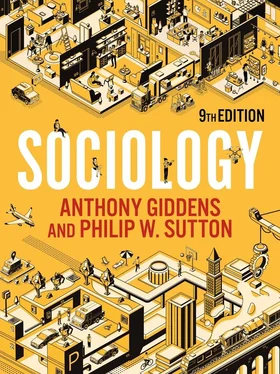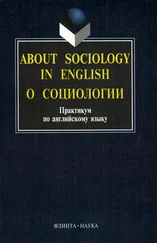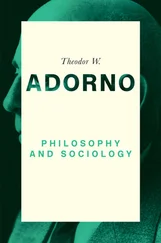According to Foucault, power works through discourse to shape public attitudes. Expert discourses established by those with power or authority can often be countered only by competing expert discourses. In this way, discourses can be used as powerful tools to restrict alternative ways of thinking or speaking and knowledge becomes a force of control. A prominent theme throughout Foucault’s writings is the way power and knowledge are linked to technologies of surveillance, enforcement and discipline. In sociology, this perspective has expanded the way sociologists think about power relations in many areas of the discipline.
Since the mid-1980s, advocates of postmodernism claim that the classic social thinkers took their inspiration from the idea that history has a shape – it ‘goes somewhere’ and is progressive. But this idea has now collapsed and there are no longer any ‘metanarratives’ – overall conceptions of history or society – that make any sense (Lyotard 1984). The postmodern world is not destined, as Marx hoped, to be a harmonious socialist one. Similarly, the idea that science would lead inexorably to social progress is much less plausible in an age of nuclear weaponry and global warming. Democracy has spread around the world, but in many developed political systems voters are apathetic and politicians reviled. In short, for many postmodern theorists, the grand project of modernity has run into the sand.
For Jean Baudrillard (1929–2007), the postmodern age is a world where people respond to media images rather than to real persons or places. Thus when Diana, princess of Wales, died in 1997, there was an enormous outpouring of grief all over the world. But was this the mourning of a real person? Princess Diana existed for most people only through the mass media, and her death was presented like an event in a soap opera rather than an event in real life. Separating out reality from representation has become impossible when all that exists is ‘hyperreality’ – the intertwining of the two.

See chapter 19, ‘The Media’, for a discussion of Baudrillard and hyperreality.
Zygmunt Bauman (1992) offers a helpful distinction between two ways of thinking about the postmodern. Do we need a sociology of postmodernity or a postmodern sociology? The first view accepts that the social world has moved rapidly in a postmodern direction. The enormous growth and spread of the mass media, new information technologies, the more fluid movement of people across the world and the development of multicultural societies – all of these mean that we no longer live in a modern world but in a postmodern one. However, on this view there is no compelling reason to think that sociology cannot describe, understand and explain the emerging postmodern world.
The second view suggests that the type of sociology which successfully analysed the modern world of capitalism, industrialization and nation-states is no longer capable of dealing with the de-centred, pluralistic, mediasaturated, globalizing postmodern world, and new theories and concepts will have to be devised. In short, we need a postmodern sociology for a postmodern world. It remains unclear what such a sociology would look like.
Bauman accepts that the modern project originating in the European Enlightenment of rationally shaping society no longer makes sense, at least not in the way thought possible by Comte, Marx or other classical theorists. However, from the turn of the century he moved away from the term ‘postmodern’ – which he argued had become corrupted through too diverse usage – and instead described our age as one of ‘liquid modernity’, reflecting the fact that it is in constant flux and uncertainty in spite of all attempts to impose (a modern) order and stability onto it (Bauman 2000, 2007).
Many sociologists do not believe that we are entering a postmodern age at all. One staunch critic is Jürgen Habermas (1983), who sees modernity as ‘an incomplete project’. Instead of consigning it to the dustbin of history, we should be extending it, pushing for more democracy, more freedom and more rational policies. Postmodernists, Habermas argues, are essentially pessimists and defeatists. Whichever view you think more plausible, postmodern analyses have in fact lost ground to the theory of globalization, which has become the dominant backdrop for understanding the direction of social change today. Taking a global view of the development of sociology has led to new critiques which argue that sociology has been and remains Eurocentric, failing to acknowledge the impact of colonialism on knowledge production and dissemination.

Postmodern theory is exemplified by Baudrillard’s ideas on the domination of social life by television. Does the theory still work in relation to the rapid take-up and use of social media?
List all the social changes which might support the theory of postmodernity. Do these add up to the kind of fundamental social transformation they identify or is there an alternative way of describing them?
Feminist scholarship charged sociology and sociological theory with the neglect of the core issue of gender. Something similar might be argued in relation to disability, sexuality and ethnicity, though today much has changed in all of these areas. However, questions have been raised about yet another ‘missing revolution’ in sociology, namely the neglect of the major and continuing impact of colonialism on the development of both societies and sociology. For example, our presentation of the development of sociology in this section may be criticized for its Eurocentrism, focusing on the contribution of European (and some North American) theorists while neglecting the contribution of scholars from Asia, Africa and elsewhere in the world. Bringing the latter back into the story of sociology is one aspect of a developing postcolonial or decolonial sociology (Bhambra 2007).
Postcolonial theories are diverse, but their central concern is to explore the ways in which the legacy of European colonialism remains active in both societies and academic disciplines, long after former colonies have achieved independence. Postcolonial studies attempt to expose this continuing legacy and to transform the discipline’s core concepts and theories, which previously failed to take account of colonial and postcolonial relationships. For example, standard accounts of the origins of sociology (including that in chapter 1, ‘What is Sociology?’) list the Industrial and French revolutions as formative for sociology but give no weight to the significance of colonialism and imperialism in the shaping of modern societies. Similarly, postcolonial critics argue that, because sociology emerged as an integral part of European modernity, the sociological gaze was and still is a Eurocentric one, limited to the analysis of ‘modern’ societies, but failing to incorporate the experience of the colonized societies. Sociology and the curriculum, they say, are badly in need of ‘decolonization’ (Connell 2018).
In a parallel way, sociological theory focused on explaining the emergence of modernity and analysing its radical difference from previous societies. This is evident in the work of Marx on Western capitalism, Durkheim on mechanical and organic solidarity, and Weber’s thesis of Protestantism and the origins of capitalism. But, in doing so, early sociologists effectively characterized non-European societies as ‘pre-modern’ or in some way ‘traditional’. From the late nineteenth century, this created a disciplinary division of labour, with sociology focusing on modern, industrial societies and anthropology dealing with the non-European and non-modern world (Boatca? and Costa 2010). Anthropology was forced to acknowledge the impact of colonial regimes and, later, the postcolonial situation, but sociology sidestepped any systematic engagement with colonialism, imperialism and postcolonial relations between states.
Читать дальше














